This week, European MEPs have voted in favour of a resolution that would see ‘clocking’ (winding back the mileage reading of a car to increase profit margin when selling it) made a fully criminalised action in all EU states. It already is a crime in Ireland, since the Road Traffic act was updated in 2013, but currently only five other EU states have criminal sanctions for the practice.
A common practice?
It’s a hugely serious issue, and one that affects all car buyers across the EU. In Poland, Bulgaria, and Slovakia, for instance, officials reckon that as much as half of all used cars on sale have been clocked. For Irish consumers it’s not as bad, but according to our own research here at Motorcheck, between 15-20 per cent of second hand vehicles appear to have been clocked. In the UK, realistically the only European nation with which we can trade cars, the number is reckoned to be one-in-16 cars, and a high proportion of the second hand cars imported from the UK are reckoned to have been clocked.
Odometer manipulations
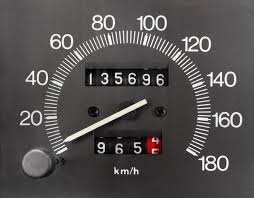 It costs the Irish consumer an estimated €60-million a year, and across the EU the cost to the consumer is reckoned to be as much as €9-billion, so the European Parliament’s actions come at an important time. Although ‘odometer manipulation’ (the official phrase for clocking) is currently prohibited in 25 EU countries, sanctions can vary widely. Offenders can face up to two years in prison in France, compared with a €226 fine in Slovakia.
It costs the Irish consumer an estimated €60-million a year, and across the EU the cost to the consumer is reckoned to be as much as €9-billion, so the European Parliament’s actions come at an important time. Although ‘odometer manipulation’ (the official phrase for clocking) is currently prohibited in 25 EU countries, sanctions can vary widely. Offenders can face up to two years in prison in France, compared with a €226 fine in Slovakia.
The vote means that the resolution will now be passed to the EU Commission, which will either have to draft official policy for states to enact, or explain to the parliament why it has chosen not to. It’s almost certain that the Commission will create that policy.
What is involved?
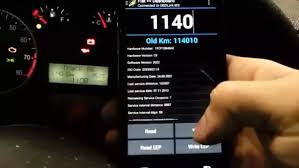 According to the MEP’s resolution, that policy should include; the creation of national databases and mandatory exchange of mileage readings across the EU; recognition of odometer tampering as a criminal offence across all EU countries; technical Inspections to include regular registration of vehicle mileage readings; and the integration of tamper-proof technological solutions by car manufacturers.
According to the MEP’s resolution, that policy should include; the creation of national databases and mandatory exchange of mileage readings across the EU; recognition of odometer tampering as a criminal offence across all EU countries; technical Inspections to include regular registration of vehicle mileage readings; and the integration of tamper-proof technological solutions by car manufacturers.
According to the European Parliament’s official statement on the matter: “Consumers not only pay too much for their vehicles, but are often faced with unexpected maintenance and repair expenses for overused cars. There are additional harmful environmental consequences as these cars are often more polluting and road safety is compromised by potentially hazardous vehicles.”
Cost to car buyers
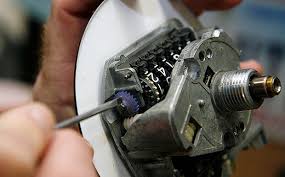 “50 per cent of second-hand cars traded in the EU have had their mileage rolled back on, with the price of vehicles fraudulently increasing by €2,000-€5,000 on average,” said Brian Hayes, MEP for Dublin. “This practice has impacted particularly on sales of imported used cars, with a staggering 30 per cent to 50 per cent of these vehicles presenting with odometers which have been tampered with. Within individual countries around the EU member states, five per cent to 12 per cent of second hand vehicles sold have altered mileage readings. I think most Irish motorists would be shocked at these figures, particularly as cross-border car purchases are now so popular. This fraud is costing an estimated €5.6-€9.6 billion a year to consumers, second-hand car dealers, leasing companies, insurers and manufacturers.”
“50 per cent of second-hand cars traded in the EU have had their mileage rolled back on, with the price of vehicles fraudulently increasing by €2,000-€5,000 on average,” said Brian Hayes, MEP for Dublin. “This practice has impacted particularly on sales of imported used cars, with a staggering 30 per cent to 50 per cent of these vehicles presenting with odometers which have been tampered with. Within individual countries around the EU member states, five per cent to 12 per cent of second hand vehicles sold have altered mileage readings. I think most Irish motorists would be shocked at these figures, particularly as cross-border car purchases are now so popular. This fraud is costing an estimated €5.6-€9.6 billion a year to consumers, second-hand car dealers, leasing companies, insurers and manufacturers.”
National mileage databases
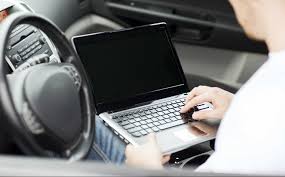 German MEP Ismail Ertug said that: “We had broad agreement on this report and in particular on the need for national odometer databases with cross-border data exchange and for manufacturers to step up their efforts on odometer security. If the EU Commission turns our recommendations into draft laws, it could provide an annual benefit of six to nine billion euros and restore consumers' trust in the used car market, while also contributing to road safety. This is a great opportunity to demonstrate true European added value by protecting consumers.”
German MEP Ismail Ertug said that: “We had broad agreement on this report and in particular on the need for national odometer databases with cross-border data exchange and for manufacturers to step up their efforts on odometer security. If the EU Commission turns our recommendations into draft laws, it could provide an annual benefit of six to nine billion euros and restore consumers' trust in the used car market, while also contributing to road safety. This is a great opportunity to demonstrate true European added value by protecting consumers.”
Needless to say, Motorcheck welcomes these moves. While a history check from us always checks a car for clocking, a proper pan-European mileage register will give us, and you, more weapons in the fight against clocking, and consistent criminal sanctions will help too.
What of our biggest market for car imports?
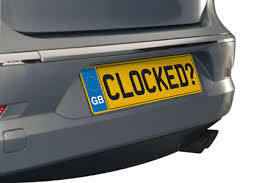 The only concern is the UK. With Brexit looming, the question facing Irish consumers looking to import a car from across the Irish Sea will be whether or not a post-leave UK will shadow EU rules on clocking. Clocking is a criminal offence in the UK already, but there have been complaints that sanctions are not being applied properly, and just 140 prosecutions for clocking have been brought forward since it was deemed a criminal offence in 2012, as compared to an estimated 2.3-million cars with incorrect or illegal mileage readings.
The only concern is the UK. With Brexit looming, the question facing Irish consumers looking to import a car from across the Irish Sea will be whether or not a post-leave UK will shadow EU rules on clocking. Clocking is a criminal offence in the UK already, but there have been complaints that sanctions are not being applied properly, and just 140 prosecutions for clocking have been brought forward since it was deemed a criminal offence in 2012, as compared to an estimated 2.3-million cars with incorrect or illegal mileage readings.
It looks like knowing the history of your next used purchase is about to be more important than ever…